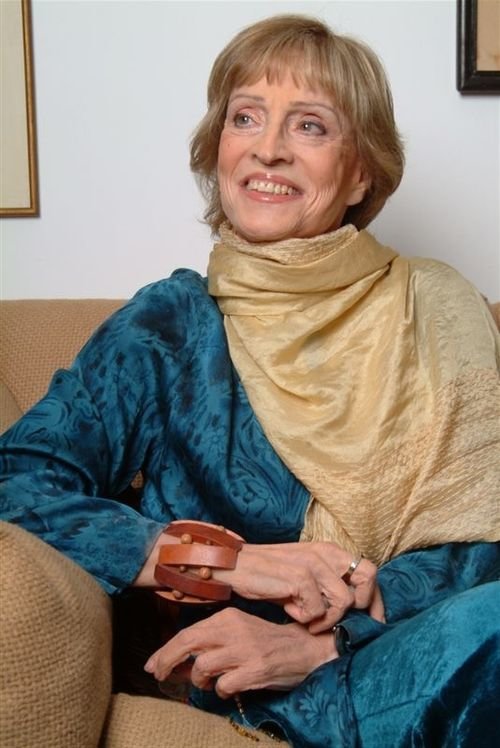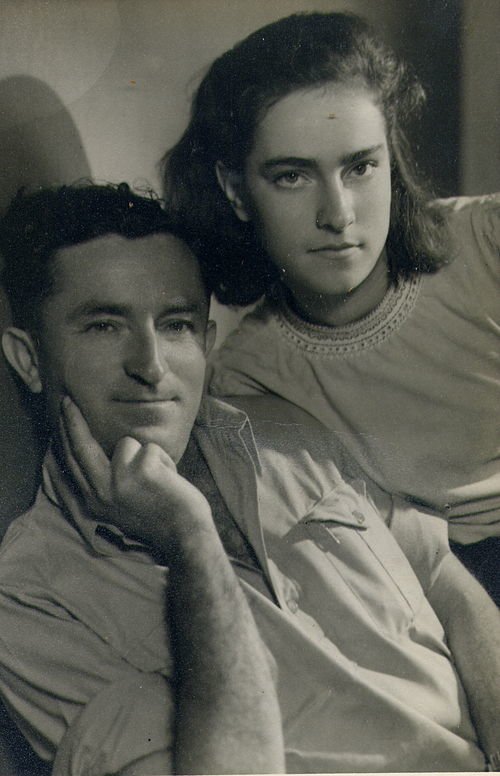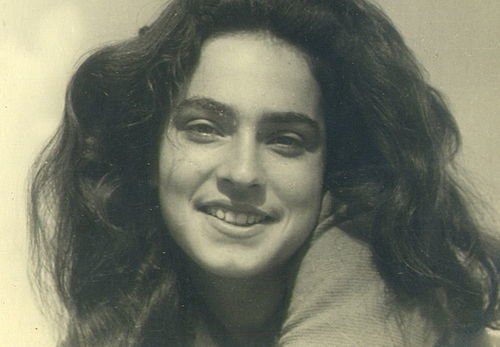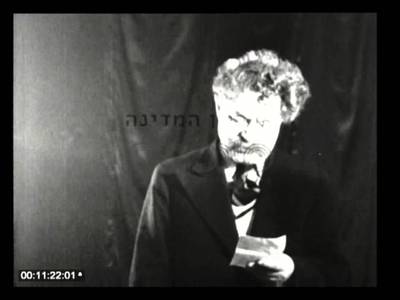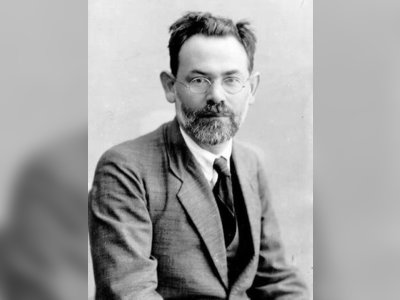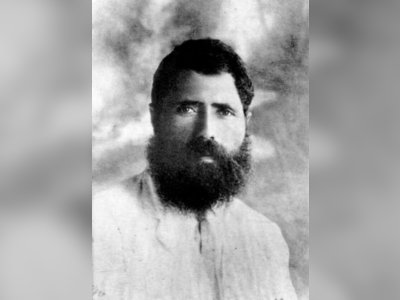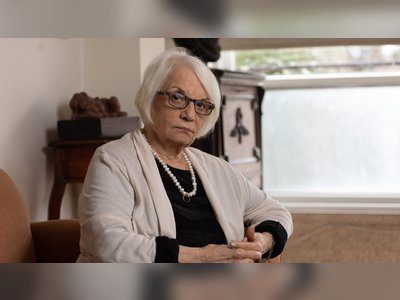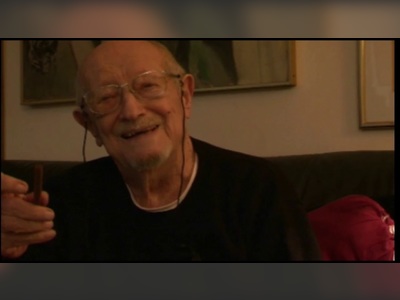מורשת גדולי האומה
בזכותם קיים
beta
Deborah Omer: A Literary Legacy for Israeli Youth
Deborah Omer (October 9, 1932 – May 2, 2013) was an Israeli author known for her prolific contributions to children's and young adult literature. She garnered numerous awards during her lifetime, including the prestigious Israel Prize in 2006.
Biography
Deborah Omer was born to Moshe Mosinzon, the brother of renowned author Yigal Mossinson, and Leah Sharvaski on October 9, 1932. Her parents divorced during her childhood, and young Deborah, along with her mother, joined the pioneering youth movement Kibbutz Ma'oz Hayyim. Tragically, in 1943, when she was just 11 years old, her mother perished in a firearms training accident related to the Jewish paramilitary organization Haganah. As the true circumstances had to be concealed from the British authorities, a cover story was invented, claiming that her mother had taken her own life. The real cause of her mother's death remained a secret that Omer discovered only during her adulthood.
During that same period, her father served in the British army in Europe and wrote lists chronicling the lives of the soldiers, which were later published in a book.
As she grew older, Deborah Omer took up writing, following in her father's footsteps. Her initial stories were published in the youth newspaper "Bama'ale," which her father edited.
Omer attended the Oranim Teachers' College and later worked as a teacher in Kibbutzim Ma'oz Hayyim and Mishmar HaSharon. Concurrently, in 1955, she began publishing a column titled "Pages of Tamar" in the newspaper "Davar LeYeladim." This column evolved into a series of books, with the first one, "Pages of Tamar," released in 1959. In February 1959, she received the prestigious Yatziv Prize, marking the beginning of her illustrious career. This initial success paved the way for dozens of additional books, establishing Deborah Omer as one of the most beloved authors of children's and young adult literature in Israel. From 1960 to 1964, she also taught at a Jewish school in Winnipeg, Canada, as one of the first Israeli emissaries there.
Many of Omer's works are biographical, designed to engage young readers with the founding figures of Zionism and the Jewish settlement in Palestine. She commenced this approach with two books she published in 1967: "The Firstborn of the House of Abi" about Itamar Ben-Abi, and "Sarah, the Heroine of 'Nili'" about Sarah Aaronsohn and the Nili espionage group. These biographies were written in an accessible and friendly style, bringing the heroes she wrote about closer to her readers. Her other books addressed the challenges of growing up for children and adolescents. Most of her books were published by the Y. Shribman publishing house.
Some of her works were adapted into successful children's theater productions.
Throughout her career, Deborah Omer received numerous awards for her contributions to children's and young adult literature. In 2006, she was honored with the Israel Prize for her significant impact on Israeli culture. The judges commended her for "transforming the Israeli-Zionist past into a living tapestry of iconic figures and thrilling events, together forming a magnificent Zionist narrative." In 2013, shortly before her passing, she received the Akum Prize for her life's work.
Deborah was married to Samuel Omer (born Samuel Varnik) at the time of their marriage, who later became the CEO of the Bimah Theater. The couple had three children: Tali Omer, a communications professional; Gil Omer, the CEO of the Children's Museum in Holon and the chairman of the Israeli Broadcasting Corporation; and Ron Omer, an actor, model, and editor.
In her later years, Deborah Omer retreated from public life due to declining health. She passed away on May 2, 2013, leaving behind a literary legacy that continues to inspire and educate generations of Israeli youth.
She resided in the Moshav Kfar Ma'as, where she was laid to rest on May 5, 2013.
Her archives are now preserved in the Archives Department of the National Library in Jerusalem, ensuring that her literary contributions will be remembered for generations to come.
Deborah Omer was born to Moshe Mosinzon, the brother of renowned author Yigal Mossinson, and Leah Sharvaski on October 9, 1932. Her parents divorced during her childhood, and young Deborah, along with her mother, joined the pioneering youth movement Kibbutz Ma'oz Hayyim. Tragically, in 1943, when she was just 11 years old, her mother perished in a firearms training accident related to the Jewish paramilitary organization Haganah. As the true circumstances had to be concealed from the British authorities, a cover story was invented, claiming that her mother had taken her own life. The real cause of her mother's death remained a secret that Omer discovered only during her adulthood.
During that same period, her father served in the British army in Europe and wrote lists chronicling the lives of the soldiers, which were later published in a book.
As she grew older, Deborah Omer took up writing, following in her father's footsteps. Her initial stories were published in the youth newspaper "Bama'ale," which her father edited.
Omer attended the Oranim Teachers' College and later worked as a teacher in Kibbutzim Ma'oz Hayyim and Mishmar HaSharon. Concurrently, in 1955, she began publishing a column titled "Pages of Tamar" in the newspaper "Davar LeYeladim." This column evolved into a series of books, with the first one, "Pages of Tamar," released in 1959. In February 1959, she received the prestigious Yatziv Prize, marking the beginning of her illustrious career. This initial success paved the way for dozens of additional books, establishing Deborah Omer as one of the most beloved authors of children's and young adult literature in Israel. From 1960 to 1964, she also taught at a Jewish school in Winnipeg, Canada, as one of the first Israeli emissaries there.
Many of Omer's works are biographical, designed to engage young readers with the founding figures of Zionism and the Jewish settlement in Palestine. She commenced this approach with two books she published in 1967: "The Firstborn of the House of Abi" about Itamar Ben-Abi, and "Sarah, the Heroine of 'Nili'" about Sarah Aaronsohn and the Nili espionage group. These biographies were written in an accessible and friendly style, bringing the heroes she wrote about closer to her readers. Her other books addressed the challenges of growing up for children and adolescents. Most of her books were published by the Y. Shribman publishing house.
Some of her works were adapted into successful children's theater productions.
Throughout her career, Deborah Omer received numerous awards for her contributions to children's and young adult literature. In 2006, she was honored with the Israel Prize for her significant impact on Israeli culture. The judges commended her for "transforming the Israeli-Zionist past into a living tapestry of iconic figures and thrilling events, together forming a magnificent Zionist narrative." In 2013, shortly before her passing, she received the Akum Prize for her life's work.
Deborah was married to Samuel Omer (born Samuel Varnik) at the time of their marriage, who later became the CEO of the Bimah Theater. The couple had three children: Tali Omer, a communications professional; Gil Omer, the CEO of the Children's Museum in Holon and the chairman of the Israeli Broadcasting Corporation; and Ron Omer, an actor, model, and editor.
In her later years, Deborah Omer retreated from public life due to declining health. She passed away on May 2, 2013, leaving behind a literary legacy that continues to inspire and educate generations of Israeli youth.
She resided in the Moshav Kfar Ma'as, where she was laid to rest on May 5, 2013.
Her archives are now preserved in the Archives Department of the National Library in Jerusalem, ensuring that her literary contributions will be remembered for generations to come.
- דבורה עומרhe.wikipedia.org
